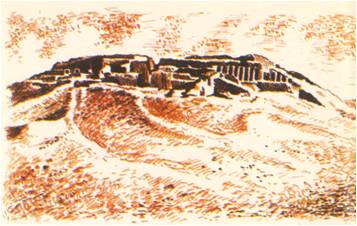For thousands of years during the Stone Age, only scattered groups of people had lived in India. With only the simplest tools of bone, wood and stone, they hunted and gathered food. Cut off from other peoples by the mountain and the sea, the first Indians made few advances in their primitive way of life. Then, sometime between 3500 B. C., new settlers began to appear along the Indus River Valley in northwestern India, a region that would be called West Pakistan thousands of years later. It seems almost certain that these newcomers were from the mountains and plateaus to …
Read More »